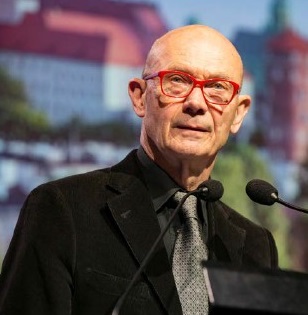
Interview: Chairman of the World Committee on Tourism Ethics
Appointed as Chairman of the World Committee on Tourism Ethics in 2013, Pascal Lamy has been instrumental in the process of presenting the Convention on Tourism Ethics to the 22nd UNWTO General Assembly. Here, he is interviewed at the UN World Tourism Organization (UNWTO) GA meeting in Chengdu, China.
Q. The exponential growth of the tourism sector should translate into higher ethical responsibility. What, in your opinion, are the main challenges that the sector faces in that regard?
A. In the last decades, the number of travelers has multiplied by three and the tourism sector has been growing at a rate of 4% per year. This means that it is necessary to make sure that the 1,235 million tourists travelling today do not become 1,235 problems. Protecting the environment, respecting human rights – particularly those of societies’ most vulnerable groups – and preserving cultural richness and traditions, as well as tangible and intangible heritage, are some of our current challenges. These are also the pillars of the International Year of Sustainable Tourism for Development, pillars that should guide the responsible growth of the sector in the coming decades.
Q. What is the Convention on Tourism Ethics and what impact do you expect it to have in the sector?
A. We presently have a Global Code of Ethics for Tourism, which was adopted in 1999, on how to develop tourism in a responsible and sustainable manner. It is addressed to all stakeholders alike: governments, tourism operators, the hotel sector, tourism workers and travelers. It has been working reasonably well, but we feel that we have to make it stronger. With tourism’s growth we have to take the collective commitment to ethical tourism a step further, via the conversion of the Code into a proper Convention. Probably not all Member States of UNWTO will sign this, but we expect a lot of support. The Code of Ethics is for Member States, operators, industry and consumers. The Convention, being an international, legally-binding treaty, can only be signed and ratified by Member States. Consequently, they are the ones that have to make sure that all actors of their national tourism sectors are responsible and work together to make tourism more ethical. The approval of the Convention, is an ideal achievement of the International Year of Sustainable Tourism for Development that we are celebrating throughout 2017.
Q. What are the key pillars of the Convention on Tourism Ethics?
A. Based on the Global Code of Ethics for Tourism, the Convention has a set of ethical principles that encompass key areas of responsible development, which largely coincide with the UN 2030 Agenda.
• Sustainable development and wildlife, promotion of local culture, waste and energy management, climate change and pollution control);
• Social issues (poverty alleviation, quality of life, protection of children, empowerment of women, accessibility to tourism for all);
• Local community development (local employment opportunities through tourism, local consumption patterns, respect of the rights of indigenous people);
• Improved understanding between cultures (ensuring respect of host societies, transparent tourist information); and
• Labor issues (equal opportunities and nondiscrimination, paid leave, freedom of association, working conditions, career development programs).
Q. How was the text of the Convention prepared?
A. Shortly after the 2015 UNWTO General Assembly, it was decided that the Code of Ethics would have to be converted into an international convention. The UNWTO Secretariat was requested to start preparations to this effect and a Working Group was set up to draft the convention. All UNWTO Member States were invited to be part of the Working Group. As Chairman of the World Committee on Tourism Ethics I participated in all meetings of this Working Group.
